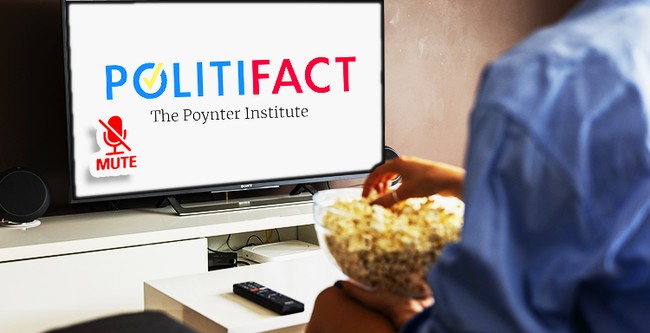
Poynter, the journalism school that claims to be the conscience and educator of the MSM and is the publisher of Politifact, has an explainer for why the juveniles who were involved in the mass shooting at the Kansas City Chiefs’ Superbowl celebration shouldn’t be named.
From @PolitiFact: Why the juvenile suspects in the Chiefs parade shooting haven’t been named, unlike Kyle Rittenhousehttps://t.co/sJvpTflhld
— Poynter (@Poynter) February 26, 2024
It can be summed up in one quote:
“They shouldn’t have their lives derailed because of one bad decision,” said Clark Peters, a University of Missouri associate professor specializing in criminal and juvenile justice.
Poyter’s explainer is careful to distinguish between the murderers who fired randomly into a parade, killing one and injuring many, and other cases where juveniles have their identities splashed around the world.
The explainer is pure sophistry.
“I am trying to comprehend why the government was quick to reveal my name after I defended myself, but they still haven’t released the names of the Kansas City shooters,” Rittenhouse posted Feb. 20 on X.
Authorities charged four people, two adults and two minors, in connection with the Feb. 14 shooting in Kansas City, Missouri.
Several other social media users besides Rittenhouse saw a double standard between the details released in this shooting — the adult suspects are Black, while the juveniles’ races are unknown — and other high-profile, but noncriminal, incidents involving white minors. They mentioned Nick Sandmann, a high schooler whose encounter with a Native American man went viral in 2019, and Holden Armenta, a 9-year-old who was criticized by the news outlet Deadspin for wearing black and red face paint and a Native American headdress to a 2023 Chiefs game.
All of these cases involved different circumstances that determined whether identifying information about the minors was released. For example, Missouri law does not allow for juvenile defendants to be identified, except in more severe criminal cases, while Wisconsin law treats all 17-year-olds as adults in criminal prosecutions.
Regardless of whether local authorities release identifying information about minors, four journalism ethics experts told PolitiFact that newsrooms must consider the ethics of publishing such details.
Of course they should consider the ethics. Splashing a 10-year-old’s face across the internet in order to slag him by falsely accusing him of being a racist is unethical. Working assiduously to destroy Nick Sandmann by spreading a false narrative about his racism toward a Native American “elder,” whatever that is, is unethical.
Naming Rittenhouse? That is a closer call. We can obviously criticize the news outlets for slandering him and reporting false information in a slanted manner, but Rittenhouse was involved in legal proceedings stemming from a high-profile story of national import.
Which is clearly the case in the Kansas City shooting. As importantly, the media hasn’t simply decided not to report the names, but all identifying characteristics. And that is obviously all about the Narrative. If the kids were skinheads the story would be totally different, and we all know that.
But these kids? Don’t want to ruin their lives for one small mistake.
When deciding to name a minor suspect, news organizations should weigh a person’s right to privacy and the public’s right to know, said Kellie Stanfield, an associate professor of broadcast journalism at the University of Missouri.
John Watson, an associate professor of communications law and journalism ethics at American University, said this is especially important to prioritize minimizing harm when children are involved.
“The potentially massive and long-term harm to children is probably never ethically justified given that they should not be held to the same standards of publicized accountability as newsworthy adults,” Watson said.
Experts said some of the questions journalists should consider are:
- Does the public need to know the minor’s identity? Why or why not?
- Would shielding the minor’s identity lead to public harm?
- Does releasing the minor’s identity give readers a deeper understanding of the context of the story?
“Each circumstance, obviously, is different and might change what a journalist would ultimately decide to do. But the key thing … is to remind oneself that we are dealing with human beings and not just reporting information,” said Aly Colón, a media ethics professor at Washington and Lee University.
I don’t think we need to know the names of the shooters, but they have been shielded from any kind of scrutiny at all. The police, the media, and now Poynter are justifying ex post facto choices they have made based entirely of the desire to prevent the public from seeing something inconvenient to their Narrative, which is that White males are the most dangerous people in America.
Statistically speaking that isn’t true, and we all intuitively know that to be so. The media can’t change the statistics, although there is abundant evidence that suspects who are non-White are now being classified as White–but they sure as hell want to change our intuition by skewing the facts in news stories.
“Each circumstance, obviously, is different and might change what a journalist would ultimately decide to do. But the key thing … is to remind oneself that we are dealing with human beings and not just reporting information,” said Aly Colón, a media ethics professor at Washington and Lee University.
Given this fact, why was reporting the name of Nick Sandmann and the Covington Catholic school so important? And why did the story spread around the world before anybody knew the facts?
We all know the answer, and it is an ugly one.
Poynter has given us yet another peek behind the curtain of how journalists are taught. It is pure sophistry to create explanations that make plausible sense for reporting clearly distorted versions of reality.
It is no different from Google’s manipulation of reality and is done for the same reason.
If the world doesn’t fit one’s preconceptions, then change the way the world looks.










